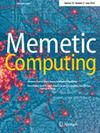Memetic ComputingSCIE
國際簡稱:MEMET COMPUT 參考譯名:模因計算
- 基本信息:
- ISSN:1865-9284
- E-ISSN:1865-9292
- 是否OA:未開放
- 是否預警:否
- TOP期刊:是
- 出版信息:
- 出版地區(qū):GERMANY
- 出版商:Springer Berlin Heidelberg
- 出版語言:English
- 出版周期:4 issues per year
- 出版年份:2009
- 研究方向:COMPUTER SCIENCE, ARTIFICIAL INTELLIGENCE-OPERATIONS RESEARCH & MANAGEMENT SCIENCE
- 評價信息:
- 影響因子:3.3
- H-index:26
- CiteScore指數(shù):6.8
- SJR指數(shù):0.945
- SNIP指數(shù):1.1
- 發(fā)文數(shù)據(jù):
- Gold OA文章占比:8.64%
- 研究類文章占比:100.00%
- 年發(fā)文量:17
- 自引率:0.1276...
- 開源占比:0.0795
- 出版撤稿占比:0
- 出版國人文章占比:0.42
- OA被引用占比:0
英文簡介Memetic Computing期刊介紹
Memes have been defined as basic units of transferrable information that reside in the brain and are propagated across populations through the process of imitation. From an algorithmic point of view, memes have come to be regarded as building-blocks of prior knowledge, expressed in arbitrary computational representations (e.g., local search heuristics, fuzzy rules, neural models, etc.), that have been acquired through experience by a human or machine, and can be imitated (i.e., reused) across problems.
The Memetic Computing journal welcomes papers incorporating the aforementioned socio-cultural notion of memes into artificial systems, with particular emphasis on enhancing the efficacy of computational and artificial intelligence techniques for search, optimization, and machine learning through explicit prior knowledge incorporation. The goal of the journal is to thus be an outlet for high quality theoretical and applied research on hybrid, knowledge-driven computational approaches that may be characterized under any of the following categories of memetics:
Type 1: General-purpose algorithms integrated with human-crafted heuristics that capture some form of prior domain knowledge; e.g., traditional memetic algorithms hybridizing evolutionary global search with a problem-specific local search.
Type 2: Algorithms with the ability to automatically select, adapt, and reuse the most appropriate heuristics from a diverse pool of available choices; e.g., learning a mapping between global search operators and multiple local search schemes, given an optimization problem at hand.
Type 3: Algorithms that autonomously learn with experience, adaptively reusing data and/or machine learning models drawn from related problems as prior knowledge in new target tasks of interest; examples include, but are not limited to, transfer learning and optimization, multi-task learning and optimization, or any other multi-X evolutionary learning and optimization methodologies.
期刊簡介Memetic Computing期刊介紹
《Memetic Computing》自2009出版以來,是一本計算機科學優(yōu)秀雜志。致力于發(fā)表原創(chuàng)科學研究結(jié)果,并為計算機科學各個領(lǐng)域的原創(chuàng)研究提供一個展示平臺,以促進計算機科學領(lǐng)域的的進步。該刊鼓勵先進的、清晰的闡述,從廣泛的視角提供當前感興趣的研究主題的新見解,或?qū)彶槎嗄陙砟硞€重要領(lǐng)域的所有重要發(fā)展。該期刊特色在于及時報道計算機科學領(lǐng)域的最新進展和新發(fā)現(xiàn)新突破等。該刊近一年未被列入預警期刊名單,目前已被權(quán)威數(shù)據(jù)庫SCIE收錄,得到了廣泛的認可。
該期刊投稿重要關(guān)注點:
Cite Score數(shù)據(jù)(2024年最新版)Memetic Computing Cite Score數(shù)據(jù)
- CiteScore:6.8
- SJR:0.945
- SNIP:1.1
| 學科類別 | 分區(qū) | 排名 | 百分位 |
| 大類:Mathematics 小類:Control and Optimization | Q1 | 14 / 130 |
89% |
| 大類:Mathematics 小類:General Computer Science | Q1 | 41 / 232 |
82% |
CiteScore 是由Elsevier(愛思唯爾)推出的另一種評價期刊影響力的文獻計量指標。反映出一家期刊近期發(fā)表論文的年篇均引用次數(shù)。CiteScore以Scopus數(shù)據(jù)庫中收集的引文為基礎(chǔ),針對的是前四年發(fā)表的論文的引文。CiteScore的意義在于,它可以為學術(shù)界提供一種新的、更全面、更客觀地評價期刊影響力的方法,而不僅僅是通過影響因子(IF)這一單一指標來評價。
中科院SCI分區(qū)Memetic Computing 中科院分區(qū)
| 大類學科 | 分區(qū) | 小類學科 | 分區(qū) |
| 計算機科學 | 2區(qū) | COMPUTER SCIENCE, ARTIFICIAL INTELLIGENCE 計算機:人工智能 OPERATIONS RESEARCH & MANAGEMENT SCIENCE 運籌學與管理科學 | 2區(qū) 2區(qū) |
中科院分區(qū)表 是以客觀數(shù)據(jù)為基礎(chǔ),運用科學計量學方法對國際、國內(nèi)學術(shù)期刊依據(jù)影響力進行等級劃分的期刊評價標準。它為我國科研、教育機構(gòu)的管理人員、科研工作者提供了一份評價國際學術(shù)期刊影響力的參考數(shù)據(jù),得到了全國各地高校、科研機構(gòu)的廣泛認可。
中科院分區(qū)表 將所有期刊按照一定指標劃分為1區(qū)、2區(qū)、3區(qū)、4區(qū)四個層次,類似于“優(yōu)、良、及格”等。最開始,這個分區(qū)只是為了方便圖書管理及圖書情報領(lǐng)域的研究和期刊評估。之后中科院分區(qū)逐步發(fā)展成為了一種評價學術(shù)期刊質(zhì)量的重要工具。
JCR分區(qū)Memetic Computing JCR分區(qū)
| 按JIF指標學科分區(qū) | 收錄子集 | 分區(qū) | 排名 | 百分位 |
| 學科:COMPUTER SCIENCE, ARTIFICIAL INTELLIGENCE | SCIE | Q2 | 82 / 197 |
58.6% |
| 學科:OPERATIONS RESEARCH & MANAGEMENT SCIENCE | SCIE | Q2 | 32 / 106 |
70.3% |
| 按JCI指標學科分區(qū) | 收錄子集 | 分區(qū) | 排名 | 百分位 |
| 學科:COMPUTER SCIENCE, ARTIFICIAL INTELLIGENCE | SCIE | Q2 | 86 / 198 |
56.82% |
| 學科:OPERATIONS RESEARCH & MANAGEMENT SCIENCE | SCIE | Q2 | 38 / 106 |
64.62% |
JCR分區(qū)的優(yōu)勢在于它可以幫助讀者對學術(shù)文獻質(zhì)量進行評估。不同學科的文章引用量可能存在較大的差異,此時單獨依靠影響因子(IF)評價期刊的質(zhì)量可能是存在一定問題的。因此,JCR將期刊按照學科門類和影響因子分為不同的分區(qū),這樣讀者可以根據(jù)自己的研究領(lǐng)域和需求選擇合適的期刊。
發(fā)文數(shù)據(jù)
- 國家/地區(qū)數(shù)量
- CHINA MAINLAND53
- Singapore10
- USA7
- England6
- Australia5
- Spain5
- Canada4
- Algeria3
- Mexico3
- Brazil2
本刊中國學者近年發(fā)表論文
-
1、An intelligent scheduling algorithm for complex manufacturing system simulation with frequent synchronizations in a cloud environment
Author: Feng Yao, Yiping Yao, Lining Xing, Huangke Chen, Zhongwei Lin, Tianlin Li
Journal: Memetic Computing, 2019, Vol., , DOI:10.1007/s12293-019-00284-3
-
2、Mathematical modeling and a discrete artificial bee colony algorithm for the welding shop scheduling problem
Author: Xinyu Li, Shengqiang Xiao, Cuiyu Wang, Jin Yi
Journal: Memetic Computing, 2019, Vol., , DOI:10.1007/s12293-019-00283-4
-
3、Project portfolio selection and scheduling under a fuzzy environment
Author: Xiaoxiong Zhang, Keith W. Hipel, Yuejin Tan
Journal: Memetic Computing, 2019, Vol., , DOI:10.1007/s12293-019-00282-5
-
4、A multi-level knee point based multi-objective evolutionary algorithm for AUC maximization
Author: Jianfeng Qiu, Minghui Liu, Lei Zhang, Wei Li, Fan Cheng
Journal: Memetic Computing, 2019, Vol., , DOI:10.1007/s12293-019-00280-7
-
5、DSM-DE: a differential evolution with dynamic speciation-based mutation for single-objective optimization
Author: Libao Deng, Lili Zhang, Haili Sun, Liyan Qiao
Journal: Memetic Computing, 2019, Vol., , DOI:10.1007/s12293-019-00279-0
-
6、Novel paralleled extreme learning machine networks for fault diagnosis of wind turbine drivetrain
Author: Xian-Bo Wang, Zhi-Xin Yang, Pak Kin Wong, Chao Deng
Journal: Memetic Computing, 2018, Vol., , DOI:10.1007/s12293-018-0277-2
-
7、An improved differential evolution algorithm for solving a distributed assembly flexible job shop scheduling problem
Author: Xiuli Wu, Xiajing Liu, Ning Zhao
Journal: Memetic Computing, 2018, Vol., , DOI:10.1007/s12293-018-00278-7
-
8、Improving artificial bee colony with one-position inheritance mechanism
Author: Xin Zhang, Shiu Yin Yuen
Journal: Memetic Computing, 2013, Vol.5, 187-211, DOI:10.1007/s12293-013-0117-3
投稿常見問題
-
請問這本期刊屬于什么級別呢?可用于職稱評定嗎?
一般刊物只分省級、部級、核心,期刊本身是沒有幾類劃分的,具體是幾類或者幾級,您可以對照單位的分類文件確認一下。Memetic Computing雜志是由Springer Berlin Heidelberg出版的一本SCIE,可用于職稱評定。
-
你們能夠提供哪些核心期刊的咨詢服務(wù)?
大多數(shù)核心期刊我們都是可以提供咨詢服務(wù)的。目前核心期刊主要分為以下幾類:1.國內(nèi)核心:按照權(quán)威度排序,社科類:南大核心>南大擴展>北大核心>科技核心 按照權(quán)威度排序。工科類:CSCD C庫>CSCD E庫(相當于CSCD擴展)>北大核心>科技核心。2.國外核心(全英文):按照權(quán)威度排序為:SSCI=SCI>EI>ISTP=CPCI。
-
想快速發(fā)表,可以加急嗎?
為了確保您的職稱評定順利進行,我們建議提前半年到一年開始準備,這樣能夠保證有充足的時間來處理所有相關(guān)事宜。如果客戶需要加急服務(wù),我們會與雜志社進行溝通,以確定是否可以提供加急服務(wù)。請注意,如果確認可以加急,可能會收取一定的加急費用。
-
你們提供的服務(wù)可以確保稿件被發(fā)表嗎?
期刊編輯會綜合考慮多個因素,如發(fā)表范圍、學術(shù)價值和原創(chuàng)性等,對稿件進行綜合評估。盡管任何機構(gòu)均無法保證每篇稿件都會被發(fā)表,但我們可以用專業(yè)知識和豐富經(jīng)驗,協(xié)助您理解并遵循期刊的發(fā)表要求,從而提高您的稿件被發(fā)表的機率。
-
請問期刊發(fā)表的費用如何?
期刊發(fā)表的費用因期刊不同而異。根據(jù)您的需求,我們會為您推薦性價比最高的期刊,并提供專業(yè)的期刊供您選擇。一般來說,只要符合職稱要求,大多數(shù)作者都會選擇性價比最高的期刊作為意向期刊進行重點咨詢。我們會為您提供詳細的期刊信息和費用說明,以確保您能夠做出明智的選擇。
-
如果稿件被拒,未能成功發(fā)表,費用是否可以退還?
一般來說,我們推薦的期刊和您的專業(yè)方向、文章情況都是匹配的,極少出現(xiàn)稿件被拒的情況。如果稿件被拒,期刊編輯會提供詳細的拒稿信和建議,以幫助您了解拒稿原因并改進您的稿件。關(guān)于退款政策,具體情況可能因期刊不同而異,請您咨詢我們的工作人員以獲取詳細信息。
相關(guān)期刊推薦
-
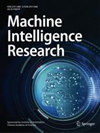
International Journal Of Automation And Computing
中科院 4區(qū) JCR Q2
大類:計算機科學
-
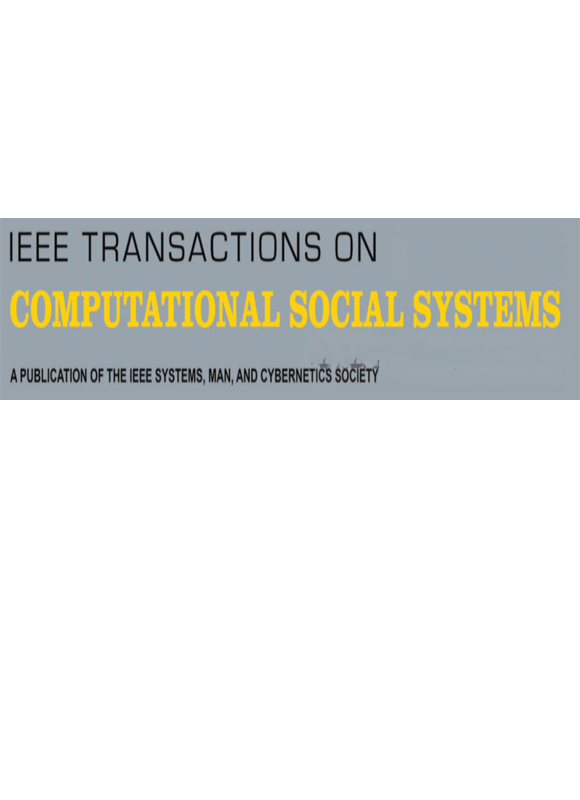
Ieee Transactions On Computational Social Systems
中科院 2區(qū) JCR Q1
大類:計算機科學
-
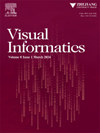
Visual Informatics
中科院 3區(qū) JCR Q1
大類:計算機科學
-
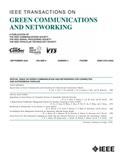
Ieee Transactions On Green Communications And Networking
中科院 2區(qū) JCR Q1
大類:計算機科學
-
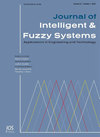
Journal Of Intelligent & Fuzzy Systems
中科院 4區(qū) JCR Q3
大類:計算機科學
-

Visual Computing For Industry, Biomedicine, And Art
中科院 4區(qū) JCR
大類:計算機科學
熱門期刊推薦
-
Engineering Applications Of Artificial Intelligence
中科院 2區(qū) JCR Q1
-
Ieee Transactions On Emerging Topics In Computational Intelligence
中科院 3區(qū) JCR Q1
-
Applied Soft Computing
中科院 1區(qū) JCR Q1
-
Ieee Transactions On Computational Social Systems
中科院 2區(qū) JCR Q1
-
Signal Image And Video Processing
中科院 4區(qū) JCR Q3
-
International Journal Of Human-computer Interaction
中科院 3區(qū) JCR Q1
-
Journal Of Industrial Information Integration
中科院 1區(qū) JCR Q1
-
Optimal Control Applications & Methods
中科院 4區(qū) JCR Q1
